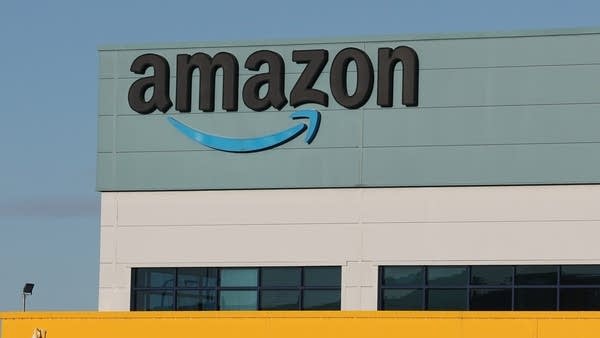The Federal Trade Commission and 17 states claim the tech giant abused its power in an effort to stamp out competition. Neil Chilson, a former chief technologist at the FTC, says the commission’s case could be difficult to prove.

“Amazon is a monopolist.” Those words are from the opening paragraphs of a lawsuit filed Tuesday against the e-commerce giant by the Federal Trade Commission and 17 states.
They say Amazon uses strategies that prevent sellers on its online marketplace from lowering prices on other platforms and compels them to use Amazon’s logistics service to be eligible for Amazon Prime.
That is the abridged version of the FTC’s 172-page filing, parts of which are heavily redacted. An algorithm allegedly fueling much of this, which is referred to as Project Nessie, also makes an appearance.
In a statement, Amazon called the case “wrong on the facts and the law,” adding it looks forward to making that case in court.
Marketplace’s Lily Jamali spoke to Neil Chilson, the former chief technologist at the FTC and currently a research fellow at the Center for Growth and Opportunity, about the FTC’s lawsuit. He said Amazon’s argument will likely hinge on the value it’s created for consumers and sellers.
The following is an edited transcript of their conversation.
Neil Chilson: Consumers may or may not remember that Amazon did not offer third-party services or third-party sellers as part of its initial product. Creating that online store has brought a ton of variety, and it’s created business opportunities for hundreds of thousands, if not millions, of small businesses across the United States and the world. I think that will be their biggest argument, that the platform overall has created huge amounts of value for consumers and for sellers and that that far outweighs any of the costs and instead creates a great value for consumers and for those sellers.
Lily Jamali: Do you agree with the way that the FTC has characterized what Amazon is doing?
Chilson: I think they will have a difficult time showing that this type of conduct hurts consumers. Consumers love Amazon Prime. Sellers love using Prime as well because it gives them fast delivery. And so, the fact that Amazon offers this, what is a pretty amazing service of two-day or sometimes even same-day delivery across the U.S., to third-party sellers is a big boon for consumers and also for sellers. So I think it will be difficult for the FTC to show that consumers are harmed by offering that service to sellers under whatever conditions they offer.
Jamali: How do you think this ends? How might this play out for Amazon?
Chilson: Well, if history is any guide, or at least recent history with the FTC’s antitrust cases, Amazon should be feeling pretty good. The track record of the current FTC in bringing cases against large tech companies without a ton of evidence about how consumers will benefit is weak. They’ve lost several times at this point. And so, I don’t know that they’ll even get past that initial threshold. This will be long and drawn out. Amazon will fight tooth and nail here. The FTC has a lot at stake. So, I don’t know exactly how it’s going to play out, but it will be a very contentious trial.
Jamali: The defense of Amazon that you laid out is that it has created huge amounts of value for both buyers and sellers. That sounds a lot like what Google is saying in a separate case brought by the Justice Department, which is challenging its dominance in search. Google says it dominates because it has the best product. I’m struck by the similarities there.
Chilson: Under U.S. antitrust law, maintaining and growing a large market share because you have the best product is not only legal, but also it’s a sign of success. I think that is always the challenge that antitrust authorities face when they try to bring a case. They have to demonstrate that the anti-competitive effect is one that harms consumers ultimately, and I think they’re going to have a tough time doing that in a case against Amazon.
Neil Chilson’s view of the case is one perspective. Another comes from Barry Lynn, executive director of the Open Markets Institute, who called the FTC’s suit against Amazon “a first step to restoring the liberty of every individual and business who relies on essential internet platforms to exchange goods, services, and ideas with one another.”
Expect to hear a lot about FTC Chair Lina Khan as this case plays out.
Khan gained recognition a few years back for a paper she wrote about Amazon as student at Yale Law School. In it, she argued that U.S. antitrust laws had failed to block Amazon from accumulating massive leverage over suppliers, competitors and we consumers. Khan’s paper sparked debate about whether those laws were due for an update.
And as Axios points out, it’s worth noting that talk of a possible FTC case of this scale against Amazon goes all the way back to the Donald Trump administration.